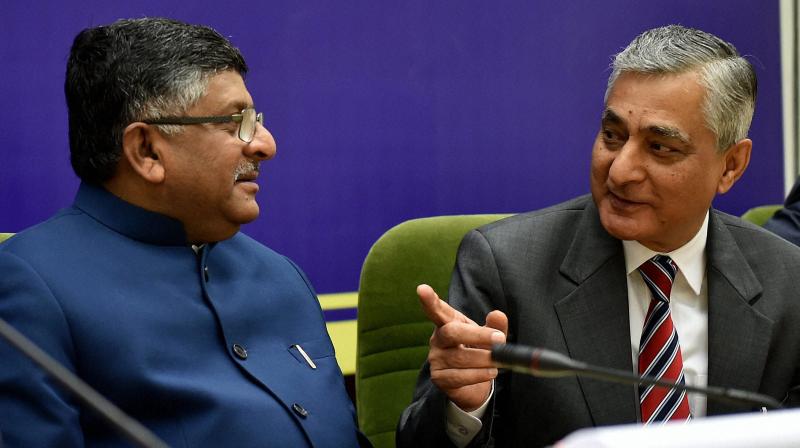Parliament, judiciary have their own space, both must be respected: BJP
Union Law Minister Ravi Shankar Prasad earlier said the government has so far appointed 120 high court judges.

Mumbai: As tensions between the judiciary and the government flared up once again, with both cautioning each other against crossing the "lakshman rekha", the Bharatiya Janata Party (BJP) on Sunday said parliament and the judiciary have their own places and one must accept their respective status.
Talking to ANI, BJP leader Shania NC said nobody suggested that the judiciary's space should be impounded.
"We respect the judiciary of the country and I don't think anyone is suggesting that their space in any way impounded upon. But the beauty of democracy is that there are processes which need to be adhered to. And, I think, both the Parliament and the judiciary have their own place and we must welcome both status," she added.
Earlier, CJI Thakur emphasised that the Prime Minister Narendra Modi-led government's attitude was lackadaisical from the very issue of filling vacancies to providing adequate infrastructure.
Stating that there are 500 judges' posts lying vacant in high courts, Thakur said that courtrooms are lying vacant without judges.
He further said that in principle, the judiciary was not against the formation of tribunals because it would relieve court duties, but the problem arose from the lack of adequate infrastructure provided to the Tribunals.
Stating he "respectfully" disagrees with Thakur, Union Law and Justice Minister Ravi Shankar Prasad said the government has so far appointed 120 high court judges, adding this is the second highest number of appointments in the history of the country's judicial system.
Prasad also said that the Supreme Court has failed to make the Memorandum of Procedure (MoP), a document to guide on the appointment of judges to the higher judiciary, more transparent and reasonable despite repeated requests from the government.
The Centre and the top court have been at war since the Supreme Court struck down the National Judicial Appointments Commission (NJAC) Act, which was brought in to end more than 20-year-old practice of judges appointing judges under the collegium system, with government having no say in the process.

